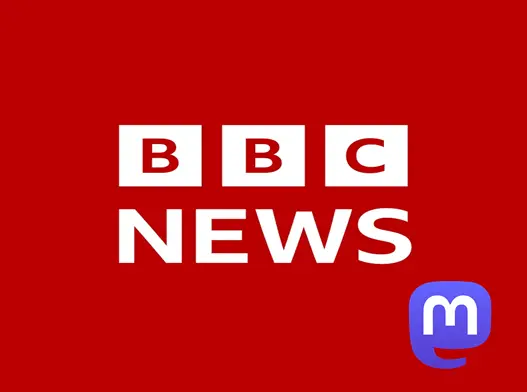
The BBC, a prominent global news outlet, has taken a pioneering leap into the world of decentralized social media by launching its own “experimental” Mastodon server. This move positions the BBC as one of the first major news organizations to establish a presence on Mastodon, offering an alternative platform for its audience to engage with BBC content.
Discovering the Mastodon Landscape – A Six-Month Experiment
With the server accessible at social.bbc, users can explore a curated feed of posts from several BBC accounts, including BBC Radio 4, BBC Taster, and BBC Research & Development, among others. The broadcaster aims to experiment with the platform for a period of six months, using this time to evaluate the platform’s effectiveness and user engagement before deciding on its future course of action.
Aligning with the Principles of the Fediverse
The BBC’s decision to explore Mastodon is driven by its alignment with the principles of the Fediverse. The decentralized nature of Mastodon fosters local control, promotes quality content, and emphasizes social value, which resonate more closely with the BBC’s public service mission than traditional commercial networks like Twitter.
Addressing Content Moderation Challenges
While the BBC’s venture into Mastodon holds promise, it also raises concerns about content moderation. Unlike centralized platforms, Mastodon does not have a dedicated moderation team. Instead, individual servers are responsible for enforcing their moderation policies. This approach has been criticized for allowing varying degrees of moderation across different instances, leading to challenges, including the spread of child sexual abuse material (CSAM) on the platform.
Learning from Others’ Experiences
The BBC’s move comes in the wake of other news outlets’ attempts to explore alternatives to Twitter. Earlier this year, the Financial Times also ventured into Mastodon but ultimately decided to shut down its server after encountering legal, reputational, and cost-related issues. The exponential growth of the Financial Times’ server led to escalating maintenance costs, emphasizing the importance of cautious planning for any media organization exploring decentralized platforms.
Balancing Risks and Benefits
By not allowing users to create accounts or posts on its Mastodon instance, the BBC seeks to mitigate some of the challenges faced by the Financial Times. However, it acknowledges that this approach comes with its own set of risks, particularly regarding user replies to BBC posts. The BBC asserts that these risks are acceptable in its quest to explore viable alternatives to traditional social media platforms.
The Twitter “Government-Funded” Label Controversy
The BBC’s move towards Mastodon is partly fueled by its desire to diversify its social media presence after a contentious incident on Twitter. Twitter, the parent company of Mastodon’s rival platform, faced backlash when it incorrectly applied “government-funded” labels to some accounts, including the BBC. This event underscored the need for news outlets to have more control over their online presence and explore alternatives that better align with their principles.
Navigating the Path Forward
As the BBC embarks on this experimental journey into the decentralized social media space, the media landscape eagerly awaits the outcome of its Mastodon venture. By leveraging the platform’s unique features while addressing content moderation concerns, the BBC seeks to engage its audience in novel ways, providing a potential model for other news organizations looking to embrace decentralized alternatives. The results of the six-month exploration will undoubtedly shape the future of the BBC’s social media strategy and may pave the way for greater adoption of decentralized platforms in the news industry.







